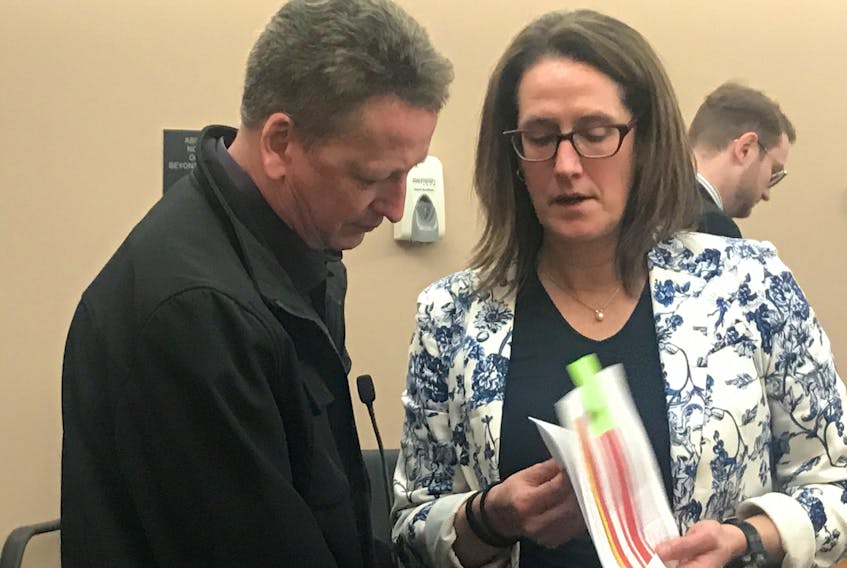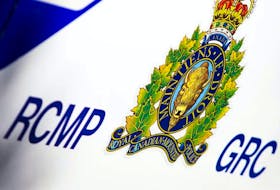ST. JOHN'S, N.L. — The trial of a Kilbride man charged with child pornography offences began in provincial court Tuesday, with some blurry, out-of-focus evidence photos and the defence questioning police officers on their system of marking evidence with sticky notes.
Thomas O'Grady, 53, has pleaded not guilty to one charge each of possessing and distributing child pornography.
O'Grady was charged in April 2017 after police received information from the National Child Exploitation Coordination Centre about a local IP address - a specific computer identification number - being involved in accessing child pornography online. Members of the now-defunct joint RCMP/RNC Combined Forces Special Enforcement Unit executed a search warrant on O'Grady's Kilbride home, finding him in bed.
Three officers from the unit testified for Crown prosecutor Paul Thistle in St. John's Tuesday, explaining how they had gathered the occupants of the home into the living room before setting up a tech triage centre in the basement. A mobile tech unit was stationed outside.
Officers designated as searchers looked for items of interest in the home, the court heard, marking objects they wanted the tech team to examine with a sticky note bearing their name and the precise time the object had been located.
RCMP officer Cory Benger told the court he had been appointed evidence custodian for the search, and was involved in photographing the items, bringing them to the tech team to be triaged and categorizing the evidence seized. Items deemed to have no evidentiary value were returned where they had been found, he said.
Among the items seized by police were two cellphones located in O'Grady's bedroom, a portable hard drive, multiple jump drives, a desktop computer and an iPad. On the desktop computer alone, police found 914 images of child pornography, Benger testified.
Other items located by police included pornographic magazines called "Barely Legal," and a sales receipt for an external hard drive, which Benger had photographed. The photo of the receipt presented in court was too blurry for the printing on it to be legible.
O'Grady's lawyer, Rosellen Sullivan, pointed out some of the sticky notes had gotten mixed up in the courtroom, and questioned Benger about his lack of written notes from the search, as well as his inability to recall certain details about the items seized from the scene.
She asked him if he had consulted the RCMP policy manual for guidance on an exhibit custodian's duties during a search; he said no.
RNC Const. Cody Field, who had been designated as a searcher, detailed for the court the items he had located in the home, giving specific information about when and where they had been found.
Sullivan questioned him about the officers' sticky note system, asking him whether this was CFSEU protocol in illegal drug searches as well.
Coady said it was, and the information on the notes was also typically documented in a ledger during the search.
RCMP Cpl. Jeff Ryan, a member of the tech crime unit, told the court he had participated in the search, first by locating the WiFi router and internet modem in the laundry room of the home.
"We always try to find the router, one, to see if it's password protected, and two, to identify an IP address," Ryan explained.
IP addresses can change over time and for a number of reasons, such as a service interruption, he said.
Ryan said the network in O'Grady's home had been password protected, with no security concerns.
At the time of the search, there were 15 devices attached to the router, the court heard, including Ryan's computer. Two of them were searched.
O'Grady's five-day trial continues Wednesday before Judge Lori Marshall.
Twitter: @tara_bradbury









